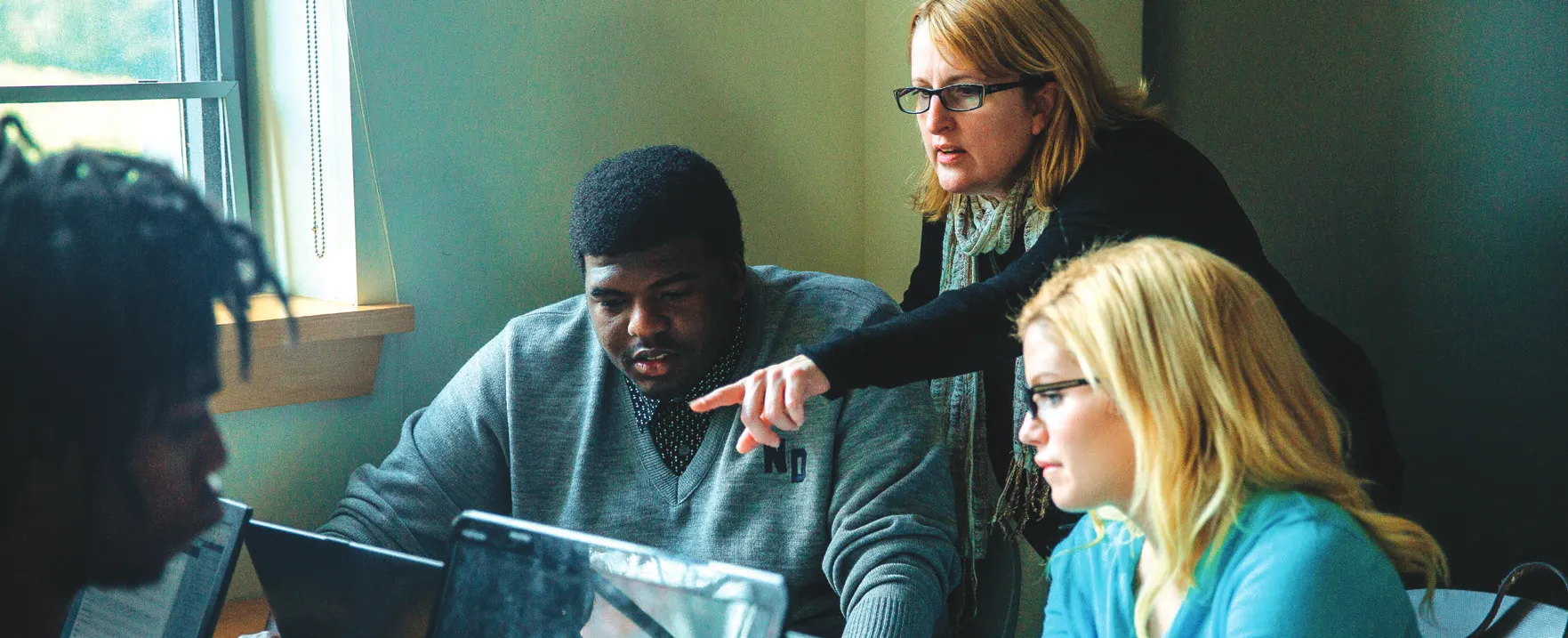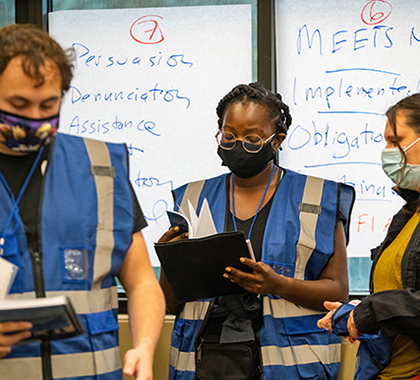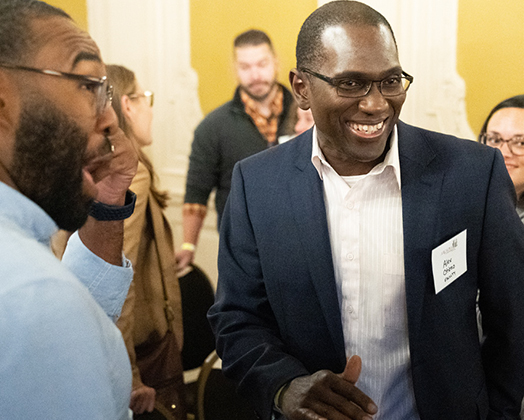Structure Your Experience to Match Your Career Goals
The IPCR program uniquely provides students with a solid foundation in international peace and conflict resolution. The program provides opportunities to put theory into practical application through project-based learning, internships, and field experiences.



Empowering Peacemakers Since 1999
Arcadia University's Master of Arts in International Peace and Conflict Resolution program incorporates academic course work, international fieldwork, internship, and masters captsone that empowers students to reach their professional goals.
Full-time or Part-time Options
You will enroll in a two-year (full-time) or four-year (part-time) master’s degree program, which includes an applied, professional internship and practical international field experiences. The program is cohort-based—you will begin together in the fall and, if you are attending full-time, complete your degree after the second spring semester.
Foundation Courses
In our foundation courses, you are engaged in deep discussions on theories of war, conflict, and peace, in small, intimate courses with your cohort. Over the course of your program, you will take required courses in:
- Theories of peace and conflict resolution.
- Practices of conflict transformation including mediation, negotiation, and facilitation.
- Conflict analysis.
- A Case in Conflict course which includes a cohort field study.
- Capstone Project course where you'll complete a practical, applied project that prepares you for a career in the field.
Elective Selection
In addition to your cohort-based courses, you will choose electives throughout your program. Electives enable you to pursue your individual career goals, which you will combine with your internship, field study courses, and a capstone project to form a comprehensive package of experiences, skills, and knowledge that will prepare you for a successful career in the field of peacebuilding.
Required Internship
With the help of our expert advisors, practitioners, scholars, and alumni, you choose your own internship. It is conducted either in the U.S. or overseas, in the final fall year alongside the Capstone Project. The internship is a key field opportunity to develop your professional skills, networks, and job prospects.
Capstone Master Class
All students conduct a Thesis and Capstone Project during the final semester of the program. The Capstone Project gives you the opportunity to integrate your theory and coursework with your internships and field experiences in a professional project. The project typically takes the form of a policy analysis, a stakeholder assessment, or a program plan, although an individually-designed project that reflects your specific career objective(s) is possible as well. Capstone students meet in a weekly seminar class where faculty provide feedback and support.

